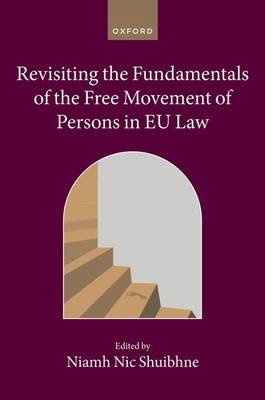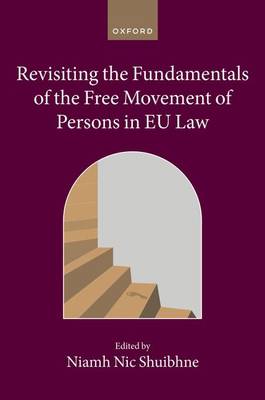
Bedankt voor het vertrouwen het afgelopen jaar! Om jou te bedanken bieden we GRATIS verzending (in België) aan op alles gedurende de hele maand januari.
- Afhalen na 1 uur in een winkel met voorraad
- Gratis thuislevering in België vanaf € 30
- Ruim aanbod met 7 miljoen producten
Bedankt voor het vertrouwen het afgelopen jaar! Om jou te bedanken bieden we GRATIS verzending (in België) aan op alles gedurende de hele maand januari.
- Afhalen na 1 uur in een winkel met voorraad
- Gratis thuislevering in België vanaf € 30
- Ruim aanbod met 7 miljoen producten
Zoeken
Revisiting the Fundamentals of the Free Movement of Persons in EU Law
€ 193,45
+ 386 punten
Omschrijving
How 'free' is the free movement of persons? Why does the law that enables it need to be 'revisited'? This collection of essays, curated by Claire Kilpatrick and Joanne Scott for the European University Institute's 2020 Academy of European Law, addresses these questions. Across different examples - migration, posted workers, social security, Brexit, and Union citizenship - each chapter revisits the categories that have become entrenched in EU law on the free movement of persons and the boundaries that have been constructed as a result. Do they still represent meaningful differences? Are they valuable compass points or inhibitors of progress? Do they ensure comprehensive or fragmented protection of the person? In reconsidering the fundamentals of EU free movement law, the book draws attention to tensions that have not yet been properly resolved: between appropriate difference and problematic discrimination, or between the mythology and the experienced reality of free movement for the people who actually move. Its chapters consider how the free movement of persons connects to and is shaped by the EU legal spaces beyond free movement as well as by the space beyond law. The contributors do not shy away from provoking a rethink of core principles. They interrogate these fundamentals and the changing objectives of the free movement of persons to take up the challenge of doing it better: of making it both more protective of people and more resilient in ethical, systemic, and sociological terms.
Specificaties
Betrokkenen
- Uitgeverij:
Inhoud
- Aantal bladzijden:
- 224
- Taal:
- Engels
- Reeks:
Eigenschappen
- Productcode (EAN):
- 9780198886273
- Verschijningsdatum:
- 29/11/2023
- Uitvoering:
- Hardcover
- Formaat:
- Genaaid
- Afmetingen:
- 164 mm x 236 mm
- Gewicht:
- 548 g

Alleen bij Standaard Boekhandel
+ 386 punten op je klantenkaart van Standaard Boekhandel
Beoordelingen
We publiceren alleen reviews die voldoen aan de voorwaarden voor reviews. Bekijk onze voorwaarden voor reviews.








